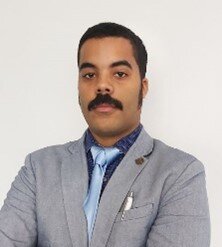Africa’s Progress towards Human & Robotic Space Exploration
What does Africa stand to gain from human and robotic space exploration? Africa has several opportunities and benefits in joining the solar system exploration race either through its enormous human potential in space legislation, space analogue sites, system engineering, project management, astronomy, miniaturisation of technology, STEAM, and integration in initiatives like the Mars Society. This series will tackle each of these developmental nodes in turn, and provide a content-rich overview on the African human and robotic space exploration journey.
Below is the first part of a nine-part article on this subject.
In 1970, a Zambian-based Sister named Mary Jucunda wrote a letter to the then Assocciate Director of Science at NASA’S Marshall Space Flight Center, inquiring about his continuing research into a piloted mission to Mars. Her question was simple, she wanted to know the rationale behind spending billions of dollars on space exploration, when there were many starving children all around the world. Today, this same question reverberates through the collective consciousness of African minds. This time, the question is:
“Why is Africa so invested in advancing this cause? What does Africa stand to gain from human and robotic space exploration?”
To answer this question, it’s best to begin with a brief exposé on the progress made in this field. It may surprise most to know that Africa has made tentative but meaningful steps to realising this ambition, and the resulting spin-off benefits are impressive. We have been closely mapping Africa’s initiative and development level in terms of human and robotic exploration of the solar system, and so far, we have determined that Africa has at least 5 astronauts, 4 analog sites, more than 80 NewSpace startups, 12 countries with space professionals, and more than 25 countries with space educational programmes, all of which have some focus on human and robotic space exploration of the solar system.
That said, and over the course of the next few weeks, we will unpack each node of this space exploration journey from an engineering and law perspective, highlighting interesting case studies and afrocentric examples along the way. This article is just the beginning, where we present to you a brief overview of the main concepts that we think will help you follow us through this 9-part series of articles.
Due to its political, social and economic disposition, Africa has followed, with relative delay, the global evolution in the space sector. The primary reasons are the lack of prioritisation of space applications to achieve the Sustainable Development Goals (SDG), the reduced belief or knowledge about the benefits of space, the reduced levels of digital literacy and infrastructure, and a lack of capacity building in different space-related areas. Despite this, the implementation of space programmes is an increasingly pertinent proponent of the 17 SDGs. Space programmes, while incredibly beneficial for socio-economic development, also require immense technical and professional skills, investments and infrastructures that many countries (especially developing) sometimes lack or don’t have the technical capacity to implement to guarantee their sustainability.
With the advent of NewSpace to complement the traditional space sector, a paradigm shift has developed where the upstream and downstream of the space industry are increasingly decentralised, and small players have begun to have more access to outer space, with lower costs but higher margins for failure. This brings more disruptive business models, technology and opportunities for Africa to enter in this new space exploration race. After having studied, through bibliographic research, interviews and the identification of practical case studies, the origin of several space programs and their evolution until they obtain the capacity for human and robotic exploration of the solar system, this series of articles proposes the principal strengths and respective weaknesses of some of the African countries. Such an analysis will guarantee medium and long-term entry into the space exploration sector.
The preliminary analysis shows that Africa has several opportunities and benefits in joining the solar system exploration race either through its enormous human potential in space legislation, space analogue sites, system engineering, project management, astronomy, miniaturisation of technology, STEAM, and integration in initiatives like the Mars Society. Accordingly, this 9-part series will tackle each of these developmental nodes in turn, and provide a content-rich overview on the African human and robotic space exploration journey.
Marco Romero
Marco Romero is a Ballistics and Navigation Specialist from the Angolan Space Program, with an Aeronautical Engineering background in the Angolan National Airforce. He represents his country as National Representative in the SGAC amongst many others. He holds a dual Masters in Robotic Space Exploration and Space Systems Engineering and has interned at various European aerospace companies. He has been recognised as one of the top 10 Under 30 in the African space industry. In his spare time he is passionate about youth empowerment and development, and has developed a space education awareness campaign for Angola including comic books on different exciting space science and technology themes.
https://www.linkedin.com/pulse/o-uso-de-sat%C3%A9lites-j%C3%A1-permite-que-angola-caminhe-para-romero/
https://www.linkedin.com/pulse/como-%C3%A9-que-um-sat%C3%A9lite-consegue-chegar-aos-35756-km-de-romero/
https://www.linkedin.com/pulse/angolan-youth-capacity-building-isae-supaero-way-achieve-romero/
Ruvimbo Samanga
Ruvimbo Samanga is a Space Law & Policy Analyst, specialising in the African traditional and NewSpace Industry. She holds a Masters in International Trade and Investment Law. She currently works as a Research Fellow with the United Nations Economic Commission for Africa as well as the Open Lunar Foundation. She has been named one of the top 10 Under 30 in the African space industry, and a top Talent Under 25 in the world. She represents Zimbabwe in the Space Generation Advisory Council as well as the Women in Aerospace Africa chapter. Her passion lies in capacity-building on the continent through policy, education, outreach and entrepreneurship.


